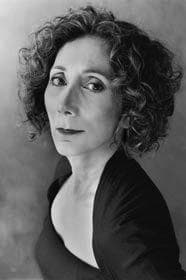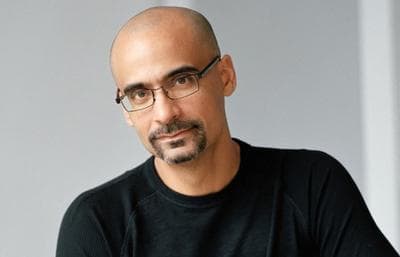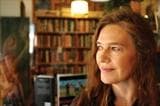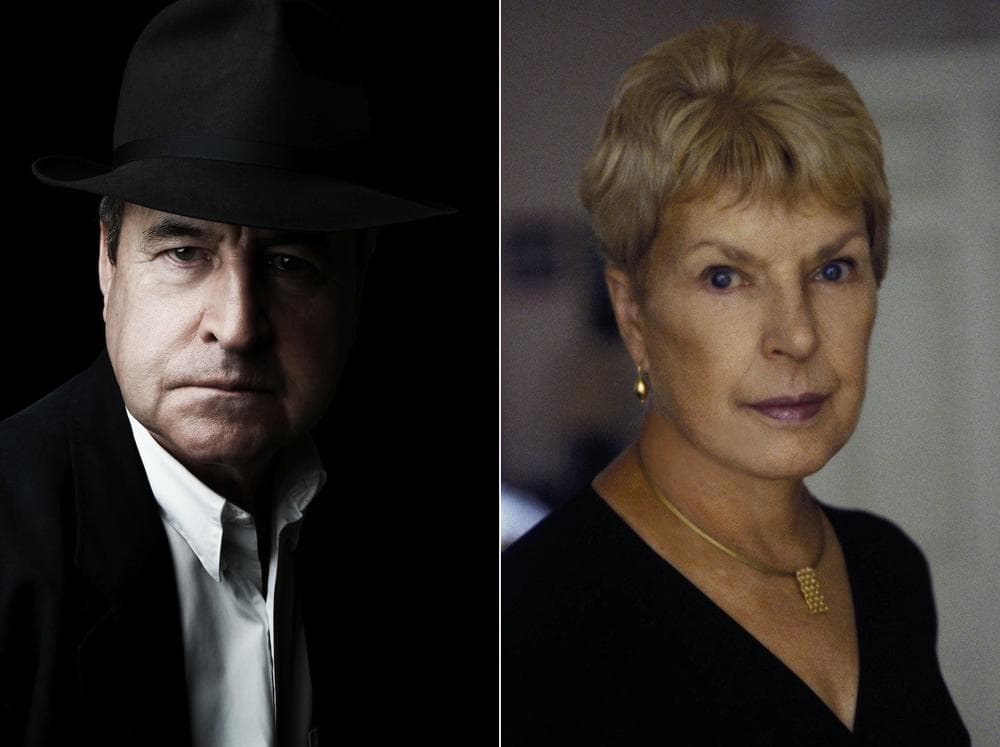Advertisement
Favorite Things: The Literary Quest For Identity

1: There are some things in life I’ll never understand. But I think I could do a better job explaining quantum physics to you than trying to explain why Ellen Ullman’s sensational novel, “By Blood," wasn’t a best seller and on everyone’s Top Ten list. Those who did review it all seemed to love it, particularly in the Times and Newsday, where I reviewed it.
Maybe it’s the title? It sounds like a Patricia Cornwell novel of disecetion when, in fact, no blood is spilled, except in a Holocaust flashback. It is incredibly suspenseful, however. The protagonist has rented an office in an old San Francisco building in the 1970s where he becomes obsessed by his psychiatric neighbor’s sessions with a woman who wants to find her birth mother. He decides he’s going to find the mother and a literary floodgate opens of nature vs. nurture, sin and morality, Judaism and Catholicism, heterosexuality and lesbianism.
And it’s beautifully written and seamlessly plotted. What more do you want, people? You’ll thank me in 2013 ...

2: ... As I thanked the friend who turned me on to Julian Barnes’s 2011 Booker-winning “The Sense of an Ending.” The Brits have a knack for writing these beautifully compact novels – when they’re not writing historical trilogies about Henry VIII – that seem to capture an entire lifetime in less than 200 pages. Ian McEwan did it with “On Chesil Beach” five years ago and his pal, Barnes, did it with this splendid little book that looks back on a life of damping down one’s passions.
How about this for a devastating summing up: “What did I know of life, I who had lived so carefully? Who had neither won nor lost, but just let life happen to him? Who had the usual ambitions and settled all too quickly for them not being realized? Who avoided being hurt, and called it a capacity for survival? Who paid his bills, stayed on good terms with everyone as far as possible, for whom ecstasy and despair soon became just words once read in novels? One whose self-rebukes never really inflicted pain? Well, there was all this to reflect upon, while I endured a special kind of remorse: a hurt inflicted at long last on one who always thought he knew how to avoid being hurt – and inflicted for precisely that reason.”

3: There’s a whole genre of novels that revisit the “Frankenstein” and “Dracula” originals hoping to find new insights into the evil that men do. The late Carlos Fuentes released a dull update of Dracula called “Vlad,” but Dave Zeltserman did a terrific job with the Frankenstein myth in “Monster.”
The Needham author has become my favorite noir writer, but he’s even better when he turns his mind to horror, as in “The Caretaker of Lorne Field.” There’s kind of a joke to the title of “Monster.” Those in the know always lecture us that Frankenstein is the doctor, not the monster. Here he’s every inch the monster, even partnering with the Marquis de Sade. Meanwhile his creation is a likable, if lethal, victim, a survivor among 19th century Mengeles. Zeltserman’s writing style is spare and unfettered, the better to keep those pages turning.
Here's what I said at the time:
As Friedrich makes his way through the countryside, Zeltserman evokes Shelley’s world and the more supernatural zeitgeist of ‘30s Universal films — he even meets up with a pack of vampires at one point. At the same time, it’s easy to think about Jerzy Kosinkski’s “The Painted Bird” or “The Pianist,” both the book and the movie.

4: At the other end of the spectrum is the disarming innocence of “The Age of Miracles.” I tend to avoid all things apocalyptic, and I’m not even sure Karen Thompson Walker had that in mind with this coming of age story, her debut. Unfortunately for her protagonist, Julia she’s coming of age at a time when the Earth’s rotation is slowing, making days and nights gradually longer. One can read a global-warming warning into the book, but Walker's great achievement is juxtaposing Julia’s everyday teen strivings with a world almost literally spinning off its axis.

5: There’s no better short-story practitioner in the English language than Alice Munro and “Dear Life” shows why. The title sounds like an evocation for how dear life is, but it’s really a statement of how we’re all hanging on for dear life in the face of loss, lust, and anything else that threatens the carefully constructed lives in Barnes’s “The Sense of an Ending.” Barnes and McEwan get whole lifetimes into novellas, but Munro can make a single moment emblematic of a life neither well-lived nor poorly lived, just lived for “Dear Life” in both senses of the term. She makes the simplest moments both profound and inevitable. She ends the book with some short personal pieces, though her fiction is always personal.

6: There is, no doubt, a certain comfort level in the above books even at their most discomfiting. Junot Díaz takes us out of that comfort zone with his dazzling prose limning life among Dominican Americans. He made his big Pulitzer splash with 2008’s “The Brief Wondrous Life of Oscar Wao,” but I prefer this year's "This Is How You Lose Her," a more concentrated search for identity in the Dominican diaspora. How does one meld the ethnic sub-culture with the melting pot uber-culture? It’s territory that Zadie Smith covers so intriguingly in her British novels, though not as well in this year’s “NW” as in her past work.

7: Unlike Díaz and Smith, Louise Erdich is not that interested in using her Native-American roots – she’s also half German-American – to create a new mashup of languages. She’s equally adept, though, at infusing “The Round House” with the rich detail of life on a North Dakota reservation. And as Walker uses science fiction to up the ante in “The Age of Miracles,” Erdich also uses the mystery genre to tell a sharply-etched coming of age story about her narrator, Joe, whose mother is raped. But this is no more a mystery than “To Kill a Mockingbird,” with which it shares quite a bit.

8: I’m not a big nonfiction fan. When I read a book it’s as much to take me out of the day to day media-saturated world into something that gives that world a little more perspective. But Sylvie Simmons takes a more artful look at Leonard Cohen in “I’m Your Man.” She obviously has a great love for one of the world’s two great folk-rock songwriters – I think you can guess the other one – and her prose can get overheated, particularly when trying to elevate his tiresome novels into great literature. But for the most part, she bores thoroughly into both his life and his art, making the two of them one.

9: John Banville is undoubtedly one of the world’s great writers, but this year he let his alter ego get the better of him. Banville shoots for the moon in his philosophical fictional recollections, and he most often gets there. “Ancient Light,” though, feels a little too undercooked, which is hardly the case for “A Death in Summer,” by Benjamin Black, Banville’s pen name for a series of mysteries featuring his Dublin detective, Quirke. Actually, he’s a coroner, which gives him the proximity to crime, but also the freedom to follow nontraditional means of solving the puzzle. We know the personal life of every crime solver in great detail these days, but Black/Banville makes Quirke’s meditations a more interesting matter of life and death than any other crime figure around today.
10. When I reviewed “Ancient Light,” I mentioned that good writing is often its own reward and there are any number of writers whose less-good novels are still more rewarding than some of the more acclaimed writing out there, such as “Gone Girl.” McEwan’s “Sweet Tooth” is one example. Smith’s “NW” is another, as is Ruth Rendell’s “The St. Zita Society,” which also took us on a tour of the new English multiculturalism and “The Child’s Child” by her alter ego, Barbara Vine, which neatly transposes today’s views on homosexuality and single parenthood with those at the turn of the century. Banville uses Black to escape his more literary strivings, Rendell uses Vine to escape her genre writing. Everyone on this list creates worlds I want to inhabit, at least while I’m reading.
On Point's roundtable on the best books of 2012
The year's best books from NPR.
Ed Siegel's favorite theater of 2012.
Ed Siegel's favorite musical performances of 2012.
This program aired on December 28, 2012. The audio for this program is not available.
